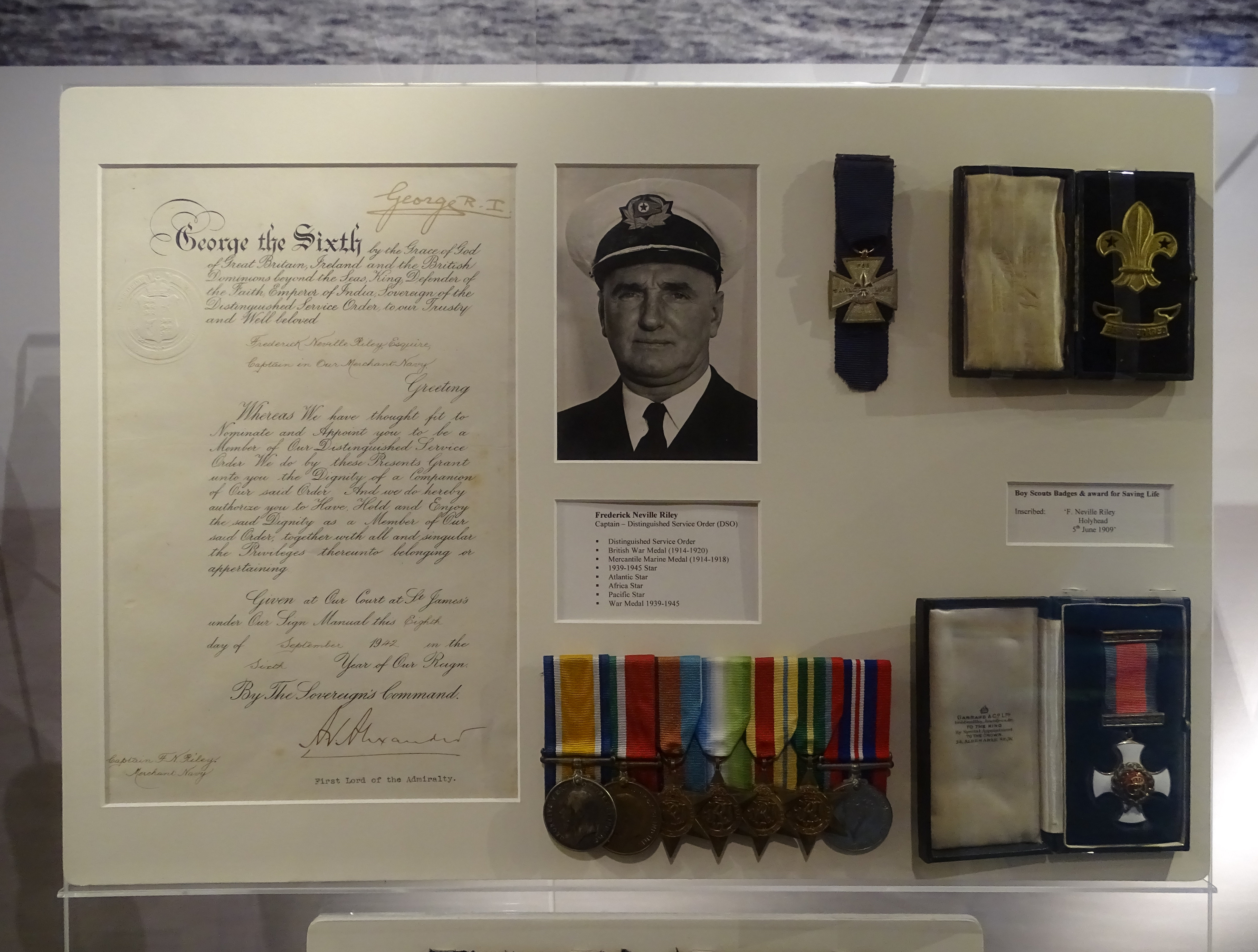Captain Riley, a former Scout at 1st Holyhead, was awarded a Distinguished Service Order for meritorious and distinguished conduct in the Second World War. Riley was a Captain in the Merchant Navy in both World Wars. It wasn’t his first experience with the sea though, as he earned the Silver Medal in 1909 for saving the life of a boy who was drowning in the sea off the coast of Holyhead.
Riley was highly decorated, earning the following: Mercantile Marine Medal, British War Medal, 1939 Star, Atlantic Star, Africa Star, War Medal, and the Pacific Star, shown below.

Riley was awarded the Distinguished Service Order for the following:
For fortitude, seamanship and endurance in taking his ship through to Malta in the face of relentless attacks by day and night from enemy submarines, aircraft and surface forces.
He was part of ‘Operation Pedestal’ in August 1942. The hardest fought convoy to Malta during World War II. In the summer of 1942, under the utmost secrecy, a convoy comprising fourteen of the fastest merchant ships afloat, departed Scotland bound for the tiny island of Malta, in the eastern Mediterranean. Under orders from Winston Churchill the convoy was to be escorted by the heaviest concentration of naval warships ever assigned to protect merchant shipping. At worst some of the ships must get through, or Malta would fall. Churchill instructed that he be kept informed as to the progress of the convoy at every stage.
On August 10, 1942 the most heavily defended convoy of WWII slipped quietly through the Straits of Gibraltar into the Mediterranean. Carrying food, diesel oil, coal, and vital aviation fuel, 14 merchant ships escorted by 34 naval warships would attempt to get through to the beleaguered island of Malta. During the three days and nights that followed, the convoy – codenamed ‘Operation Pedestal’ would endure the most ferocious and heaviest bombardment of any convoy during World War II.
The Brisbane Star took a torpedo in the bow, opening it up to the sea and causing flooding. The crippled freighter could only make 8 knots and her master, Captain Frederick Neville Riley, detached the ship from the convoy and headed south toward the Tunisian coast. By dawn on Thursday 13 August only seven of the original fourteen merchant ships were still moving toward Malta, two with serious damage (the Brisbane Star and the vital Ohio). As the Brisbane Star was limping along the Tunisian coast that evening, she was shadowed by a submarine of unknown nationality. The ship was safe in Vichy territorial waters, but then Vichy authorities appeared in a patrol boat and announced that the vessel was to be interned. Captain Riley invited two of the French officers aboard. He opened his liquor cabinet and poured on both the whiskey and the charm and was able to persuade them not to intern his ship and crew. After the Vichy officers left the ship Captain Riley waited until dark and then broke for Grand Harbour. The resourceful Captain Riley and his ship survived the night and with an umbrella of Malta based Spitfires, the Brisbane Star made its final dash for safety. The people again cheered, while staring in admiration at the ship with its torn bow, down by the head, bringing more needed supplies to the beleaguered fortress. The Brisbane Star arrived at noon on Friday 14 August.















